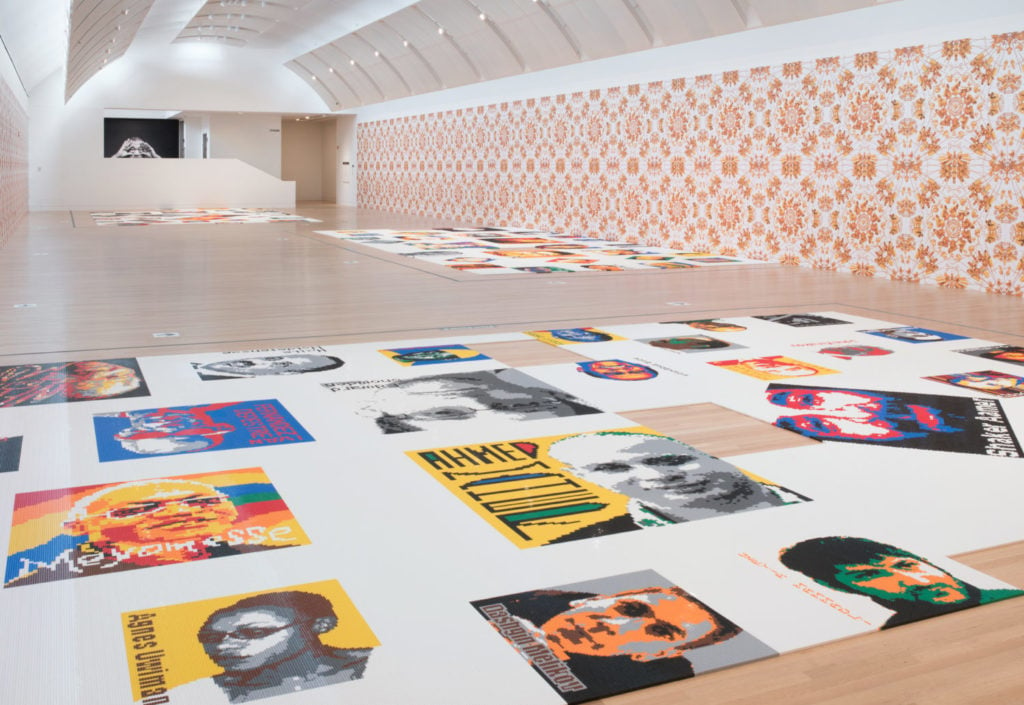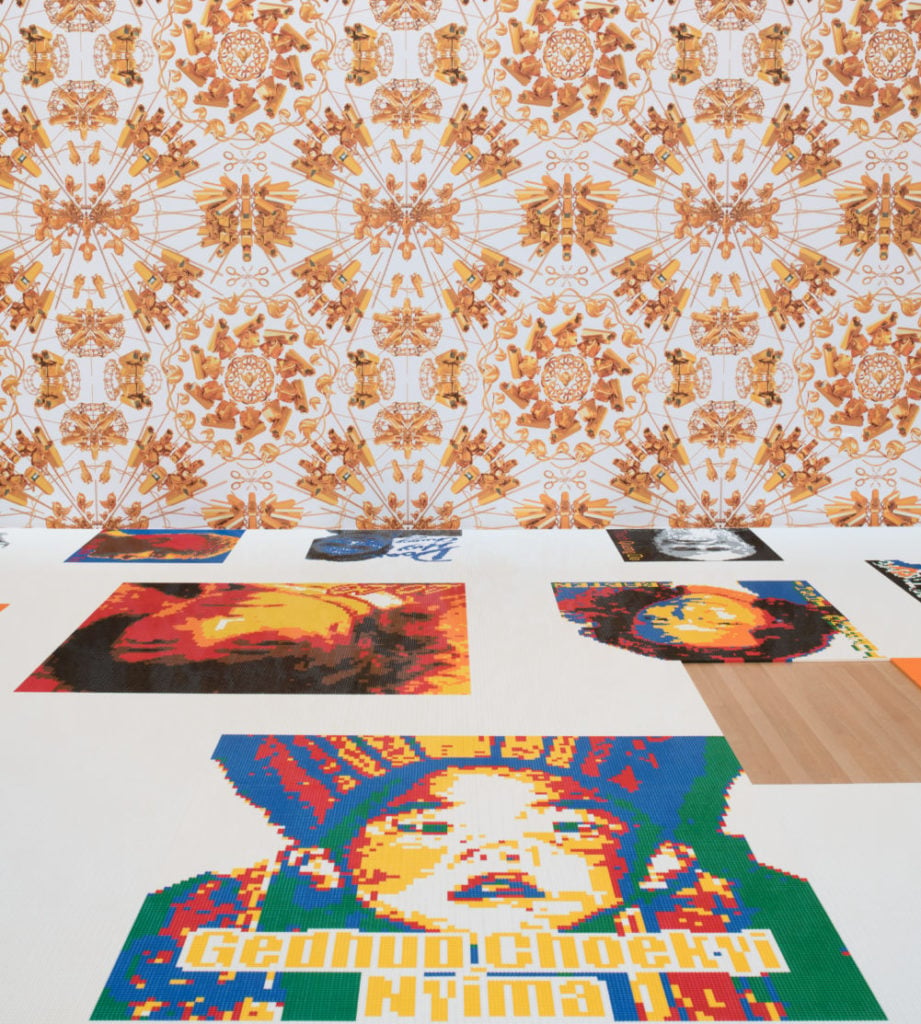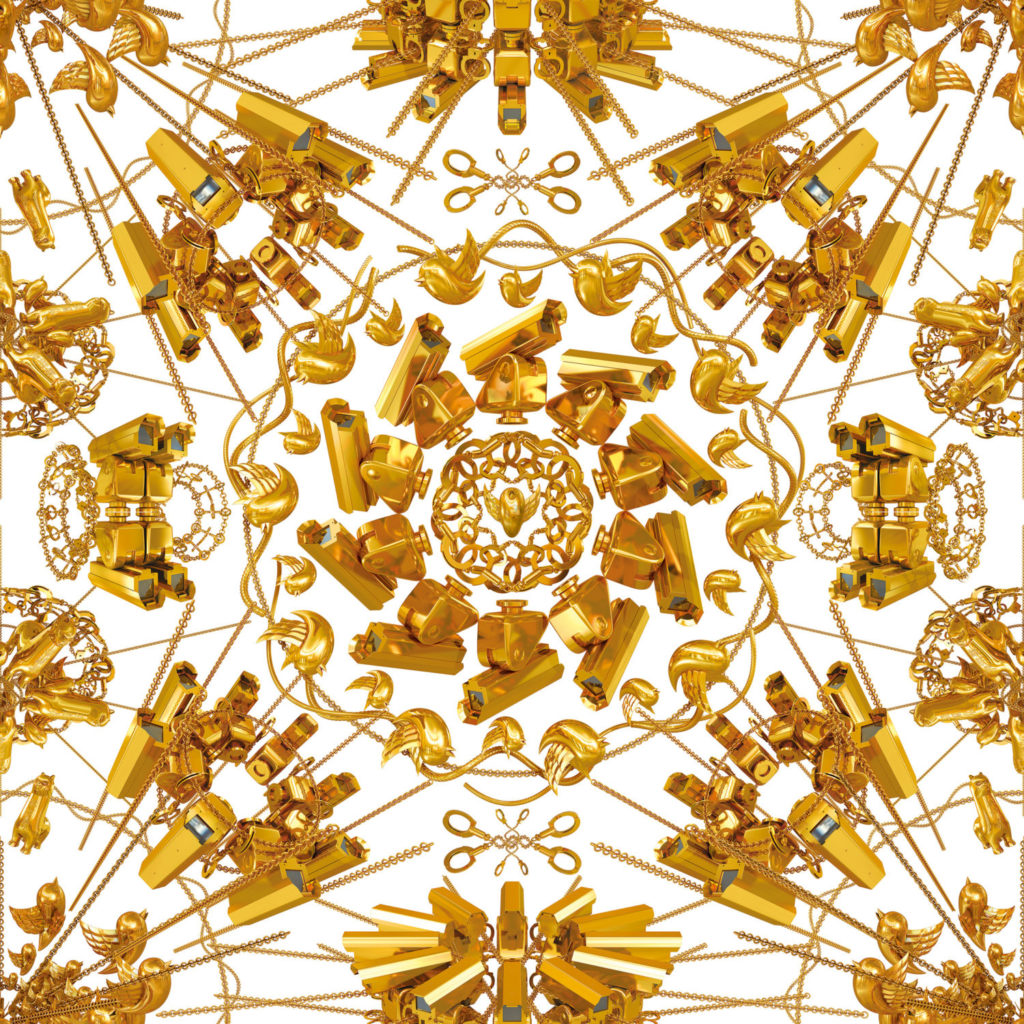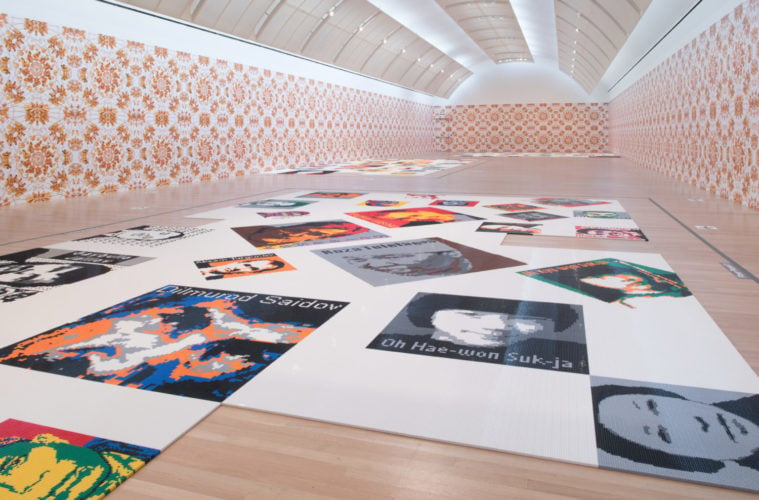Ai Weiwei is a prolific artist, whose works in sculpture, installation, photography, film and LEGO bricks have captured imaginations around the world. His high profile as a critic of the Chinese government’s human rights abuses (and by extension, the oppressive actions of regimes around the world) has galvanized international activism, earned him backlashes of his own, and famously landed him in a toxic stew of surveillance, detention, intimidation and exile — even as his career boomed. A new exhibition at the Skirball gathers portraits of 83 free speech advocates from around the world whose tribulations mirror and even surpass his own experiences.
Ai Weiwei: Trace culls the selection of LEGO portraits from the 173 which debuted in the landmark site-specific exhibition @Large: Ai Weiwei on Alcatraz, a widely visited installation at the former federal penitentiary in San Francisco. As depicted in the feature film documentary, the Alcatraz project included an array of different uses of space, light, imagery and interactive calls for participation — all designed to offer the audience entry points into this urgent yet difficult discourse. Though pared down in scope, the same dynamic is at work at the Skirball’s elegant iteration curated by Yael Lipschutz. The exhibition creates an engaging cognitive dissonance between the light-hearted, Pop-infused medium of brightly colored toy pieces and the gravely serious subject matter at hand.

Installation view of Ai Weiwei: Trace at Skirball Cultural Center (Photo by Robert Wedemeyer)
The portraits depict well-known figures — such as Nelson Mandela, Martin Luther King, Jr., Edward Snowden and Chelsea Manning — representing people from 25 countries, whose names and fates are not widely known in the U.S., including Vietnamese labor rights activist Do Thi Minh Hahn and Rwandan journalist Agnès Uwimana Nkusi. A beautifully produced mobile audio / video guide narrates the stories of each individual in the gallery, along with commentary by Ai and Lipschutz. (Pro tip: this downloads to your smartphones so bring your headphones to the museum with you.)
As you enter the installation, the display of cheerful-at-a-distance pictures arrayed on the floor and the long hall’s wallpaper of intricate, elegant decorative motifs rendered in regal gold give the overall impression of a chapel or an interior courtyard a place of refuge and pleasure. But just as on approach the true content of the portraits becomes clear, with closer inspection the wallpaper pattern reveals itself to be made of images of surveillance equipment, including and especially social media platform icons, as well as handcuffs and weapons. This dissonance works in favor of the educational mission of this project, as the aesthetic temperament creates a welcoming state of mind, open to learning, even about pernicious injustice.

Installation view of Ai Weiwei: Trace at Skirball Cultural Center (Photo by Robert Wedemeyer)
And the portraits themselves also change with proximity and contemplation. As a whole, the effect is lively; but many of the images are themselves degraded or out of focus — even before the pixelation effect of being constructed of thousands of tiny bricks further desharpens them. The graininess itself evokes the low-res quality of surveillance photographs, just as the metaphor of their puzzle-like assembly evokes both game-playing and dossier-building. Their faces hover in the middle distance, disorienting both physically (on the floor) and in the piquing of the viewer’s own political conscience. As the pleasurability of the portraits and wallpapers themselves make for prolonged viewing, the knowledge of the widespread abuse becomes impossible to forget, and the show becomes a call to action without ever uttering a slogan.
Although this exhibition marks the museum’s return to in-person viewing, besides the audio app, more online content is also available around the show. A virtual conversation with Ai and a talk by Lipschutz are streaming on the Skirball’s YouTube channel, along with on-demand screenings of four of the artist’s recent documentaries: Cockroach, Coronation, The Rest, and Vivos.
TRACES is on view at the Skirball with timed ticketing, May 15–August 1; $12, free on Thursdays; skirball.org.

Ai Weiwei, detail view of The Animal That Looks Like a Llama But Is Really an Alpaca, 2015. (Courtesy of Ai Weiwei Studio)
Advertising disclosure: We may receive compensation for some of the links in our stories. Thank you for supporting LA Weekly and our advertisers.

